It’s not just dogs that have learned to ask for titbits from the table- cats can beg too!
As with all animals, eating a balanced diet is essential- but so is knowing what human foods are safe for cats, and how much you can treat your cat without them putting on weight. In this article, we’ll cover cats’ dietary needs, what human foods cats can eat, and some foods you should avoid for cats.
What Can Cats Eat?
Blueberries are a healthy fruit with few calories and lots of nutrients.
Those canned diets and kibble diets may seem boring, but they’re there for a reason.
As long as it contains the AAFCO statement ‘complete and balanced’ for your cat’s age, any commercial cat food will meet your cat’s nutritional needs and contain everything they need to survive and thrive.
I tend to recommend that cats get at least 90% of their daily calories from a complete and balanced source, and the other 10% can be a healthy treat. You can use the Pet Nutrition Alliance calculator to work out how many calories your cat can have as their main meal and as treats. For a healthy 10lb cat, that’s just 22kcal treats per day.
In this case, ‘treats’ means anything that’s not a canned or kibble diet. It includes cat treats bought from a store, the slice of bread they snagged from the counter, and the kcal in butter you spread over their pills. It also refers to any ‘people foods’ you decide to share with your cat.
Foods Cats Can Eat
Cats can eat small amounts of avocado, but only the flesh.
If you’re looking to spice up your feline friend’s life with something a little different every now and again, you’re probably wondering what foods cats can eat.
Whenever you’re feeding your cat a new food, you should give them a very tiny amount at first, then wait 24-48 hours to observe for digestive issues before feeding any more.
1. Fruits
Cats can have a wide range of fruits to make a healthy snack full of antioxidants. Most fruits are safe for cats, but you should prepare them properly. Remove the seeds, peel, and greenery of any fruits you intend to feed, and feed just a tiny bit each day.
Here are 11 fruits you can feed your cat:
- Blueberries
- Watermelon
- Strawberries
- Cantaloupe
- Apples
- Peaches
- Pears
- Raspberries
- Avocado
- Banana
- Mango
2. Vegetables
While cats are obligate carnivores and require certain nutrients to survive, they can eat a variety of foods as treats.
Your cat can also enjoy some veggies! Most cats won’t want to eat raw vegetables as the crunch can be off-putting – but cook them up and they’ll dig right in!
As with safe fruits for cats, you’ll also want to remove the peel and seeds when preparing veggies for your cat. A good rule of thumb is to prepare the veggies as you would for yourself.
Here’s a list of 12 safe vegetables your cat might enjoy:
- Zucchini (courgette)
- Carrots
- Pumpkin
- Squash
- Cucumber
- Broccoli
- Peas
- Green Beans
- Spinach
- Beetroot
- Sweet potato
- Cooked potatoes
3. Meats And Fish
A special treat for your furry friend is a small piece of meat or fish. Cats can eat all types of boneless meat and filleted fish in small amounts. You should trim large amounts of fat and gristle and remove before feeding your cat meat.
Don’t forget that raw food can carry parasites and bacteria that cause illness in cats. You should only serve cooked meat and fish to your cat.
Meat and fish is high in calories, but it isn’t balanced – you should only feed a teaspoon-sized amount a day, and reduce their evening meal accordingly.
You might want to offer your cat any of these 13 meats or fish:
- Beef
- Pork
- Lamb
- Chicken
- Prawns
- Sardines
- Salmon
- Tuna (in spring water, not brine or oil)
- White fish (cod, haddock, tilapia)
- Venison
- Game (rabbit, pheasant, pigeon, or similar)
- Organ meat, if you’re preparing a carcass yourself
- Duck and goose
Foods Cats Can’t Eat
Don’t forget there are some foods that should never be fed to cats, because they are toxic or because they risk stomach upset.
1. Onions, Garlic, and Chives
Some foods are toxic to cats and should never be fed, even as an occasional treat.
Onions, garlic, chives, and other members of the allium family damage the red blood cells causing anemia.
Although it’s unlikely your cat will want to snack on a raw onion, you should be just as careful with cooked onions, which are present in many human foods.
2. Alcohol
Alcohol is worse for cats than it is for humans, as they cannot remove it from their system as quickly as we can. Never give your cat alcohol, and call the vet as soon as possible if you find out they’ve had some.
3. Caffeine (Coffee and Caffeinated drinks)
With all this remote working, your cat might be taking up residence in your office. But don’t let them sip your coffee, Red Bull, or other caffeinated drinks. Cats are less tolerant of caffeine than people and even a very small amount of coffee can harm a cat. You should also make sure that any coffee grounds are out of reach.
Cats may also try to eat your Nespresso pods. After all, they’re fun to bat around on the floor! Make sure that any dropped pods are disposed of safely as soon as possible.
4. Chocolate
Cats may be less prone to accidentally eating chocolate than dogs, but it’s still toxic to cats. Theobromine is similar to caffeine and is found in all chocolate, but is highest in products with a high proportion of cocoa solids – so the darker the chocolate, the higher the risk. It’s also found in baking chocolate and cocoa powder, so keep these well out of harm’s reach!
Also Read: Chocolate Poisoning In Cats: Causes, Symptoms, & Treatment
4. Grapes
It’s thought that grapes are as toxic to cats as they are to dogs. Up until recently, vets weren’t sure what caused some dogs to become so sick with grape, raisin, or sultana toxicity whilst others were fine. Progress has been made, and it may now link to tartaric acid poisoning.
Now all we have to do is work out whether grapes are toxic to cats. Until we know more, let’s err on the side of caution!
5. Raw Meat
Care should also be taken with adding raw eggs and raw meat to your cat’s diet. Humans learned to cook food to reduce the risk of infections (such as Salmonella and E.coli) and parasites, but cats are as much at risk of these dangers as humans are.
Whilst meat, eggs, and fish can all be offered to your cat as the occasional treat, you should aim to cook these products just as you would for yourself to reduce the risk of giving your cat a food-borne disease.
6. Milk And Most Dairy Products
To help them digest the milk sugars in their mom’s milk, kittens naturally produce an enzyme called lactase. As they grow up, they produce less of this enzyme and many become lactose-intolerant.
Most cats are lactose-intolerant, so milk, cheese, and dairy products shouldn’t be fed to them to avoid gut upset. Special ‘cat milk’ can be used instead- this is lactose-free.
7. Dog Food
Cats should never be fed dog food. If your cat gets hold of a bit, don’t worry- but it’s not a good long-term option for cats, as it doesn’t contain enough taurine.
8. Xylitol
Foods containing xylitol (also known as E967 or INS 967) are also toxic to cats. This artificial sweetener can be found in sugar-free products and ‘diet’ versions of popular sugary drinks and snacks.
Your Cat’s Dietary Needs – Do Cats Need Treats?
To understand what cats can and can’t eat, we need to understand their nutritional requirements.
Obligate Carnivores- Cats Need Meat To Survive
Plain raw chicken muscle meat, organs, and bones should make up a small percentage of your cat’s diet.
Cats are ‘obligate carnivores’, which means they require meat to thrive. It doesn’t mean that they can only eat meat, or that they can’t digest plant foods, but it does mean that they don’t get the right types of nutrients from plants to survive.
It all comes down to taurine, an amino acid.
Dogs, cats, and humans all need taurine, but the difference between humans and dogs compared to cats is this- humans and dogs can make their own taurine in their bodies from amino acids like methionine, which they can get from plants.
Cats, on the other hand, don’t have the right mechanisms to make their own taurine- or at least not in sufficient quantities.
They can eat all the methionine they like, but they’ll never make taurine from it.
This means that cats fed a plant-based diet will not get any taurine, and without taurine, they will quickly die.
Meats, however, contain taurine- cats need to eat this meat to survive.
Macro- And Micro-Nutrients
All diets are essentially made up of the three ‘macronutrients’ protein, carbohydrates, and fat- and water. These are all important for growth and energy.
1. Protein
Protein is an important source of energy and amino acids for the cat, and -as discussed- cats should get most of their protein from meat sources. According to AAFCO, which sets out the standards for pet foods in the US, adult cats should be fed a diet that is 26% protein as a minimum, on a dry matter basis.
2. Fat
Fat is an important source of energy, containing twice as much energy per gram than protein or carbohydrates. It also allows the absorption and movement of many vitamins that are lipid-soluble, rather than water-soluble, and omega-3 fatty acids. Cat foods should have at least 9% fat, on a dry matter basis- but fat content can often be much higher.
3. Carbohydrates
Carbohydrates are not essential for cats, but they do provide a good source of easily-metabolizable energy. As your cat’s digestive system is optimized for protein, they can struggle to digest more complex carbohydrates.
4. Vitamins And Minerals
Like other species, cats need a range of micronutrients to survive. Whilst some vitamins can be made in your cat’s body, others have to be included in the diet. Vitamin A and niacin are two vitamins that cats need to eat in order to be healthy.
There are also 12 minerals considered essential for cats, including calcium, phosphorus, and magnesium. With all of these, however, too much of these can cause as many problems as too little!
Conclusion
It’s nice to treat your cat every now and again, but remember to follow the rules: nothing toxic, prepare it properly, and stick to small amounts to avoid obesity. Most of their nutrition should come from a high-quality commercial cat food.
Frequently Asked Questions
Can cats eat human food?
Yes, cats can eat many human foods in moderation. Be sure to check that whatever you are feeding isn't toxic to cats first!
Can cats eat cooked prawns?
Cooked prawns are a safe treat for cats, but- like all human food- you should feed them sparingly! One per day is enough!
Is canned tuna good for cats?
Cats can have a teaspoon of canned tuna as a treat. However, you should only feed cats canned tuna in spring water, not in oil or brine.
Can cats eat chocolate?
Cats should not be fed chocolate; the ASPCA and Pet Poison Helpline list chocolate as poisonous to cats due to the theobromine content. If your cat has eaten chocolate, you should call your vet straight away.
-
Chocolate Are Toxic To Pets | Pet Poison Helpline
-
https://nap.nationalacademies.org/catalog/10668/nutrient-requirements-of-dogs-and-cats
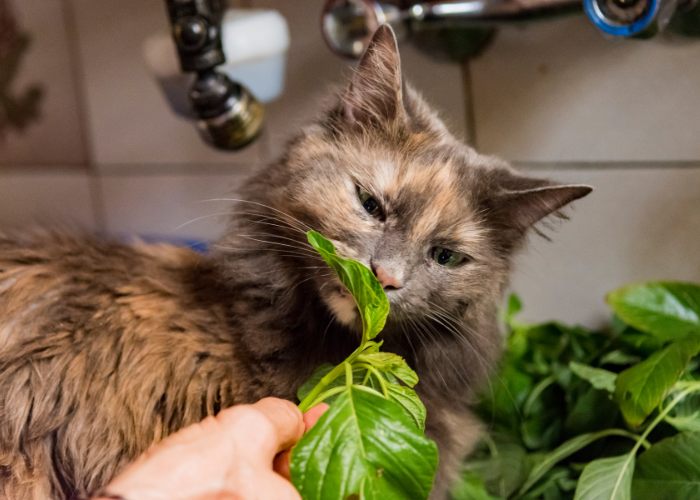
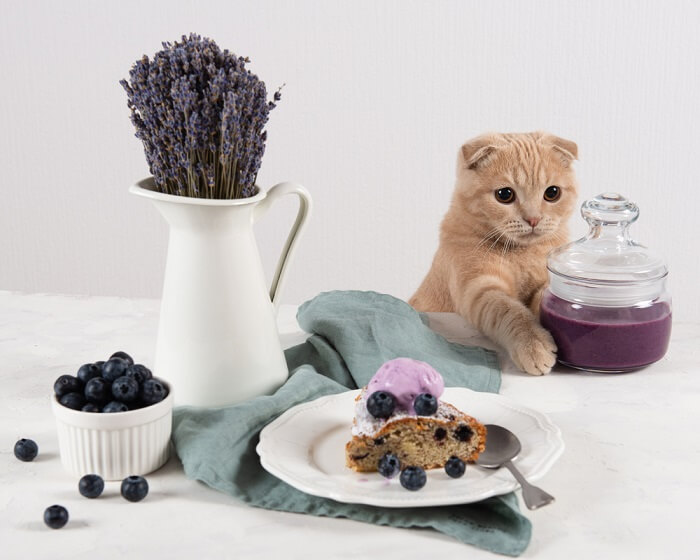

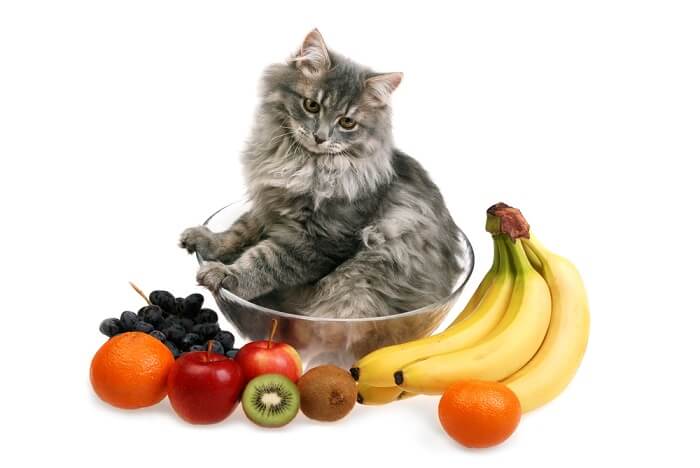
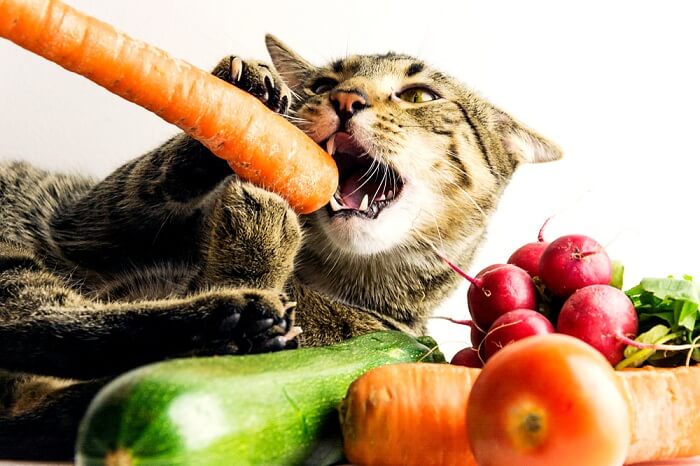


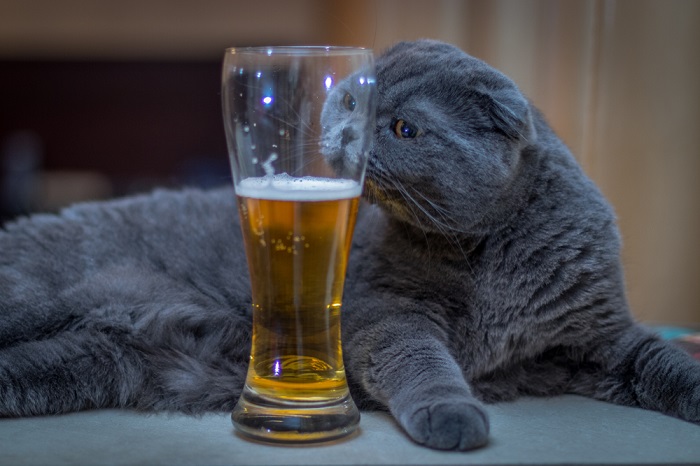

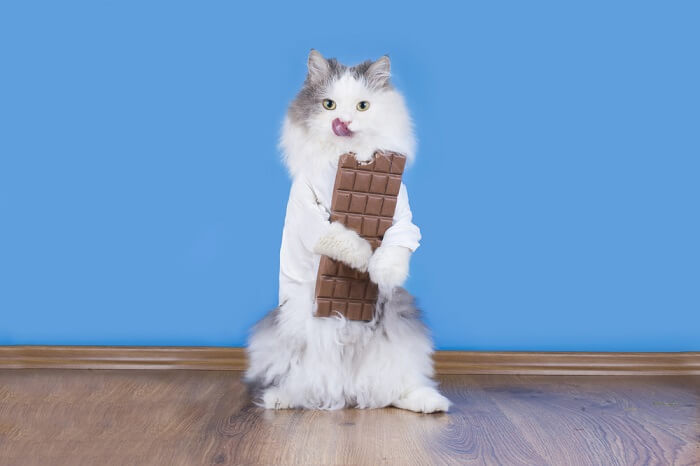
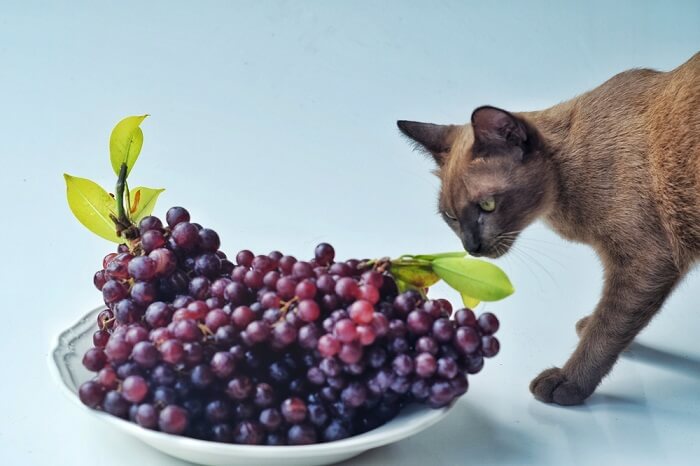
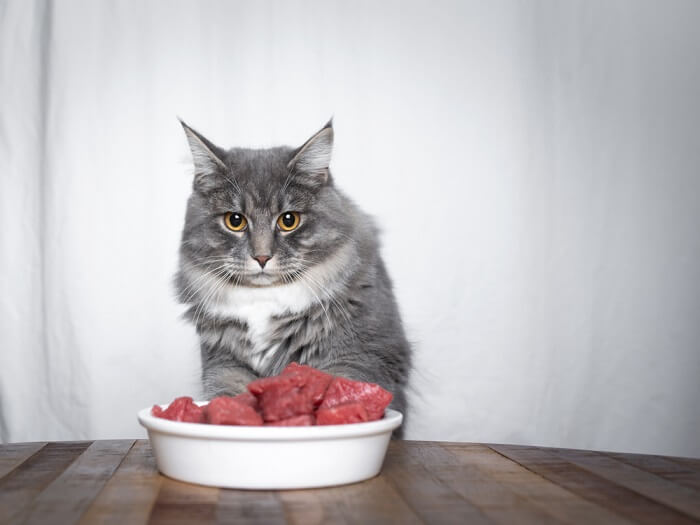
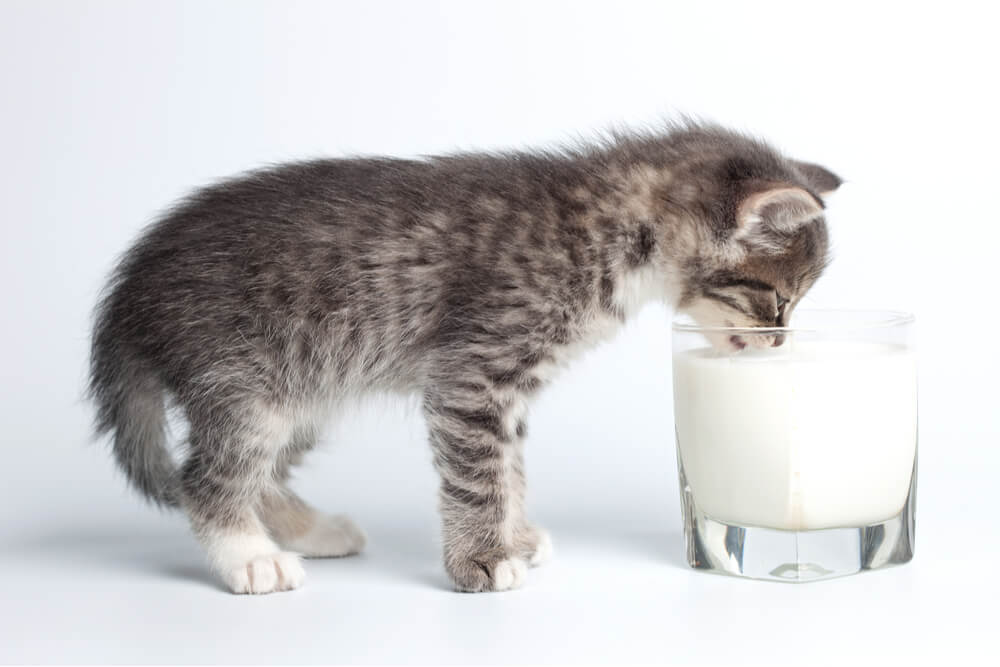
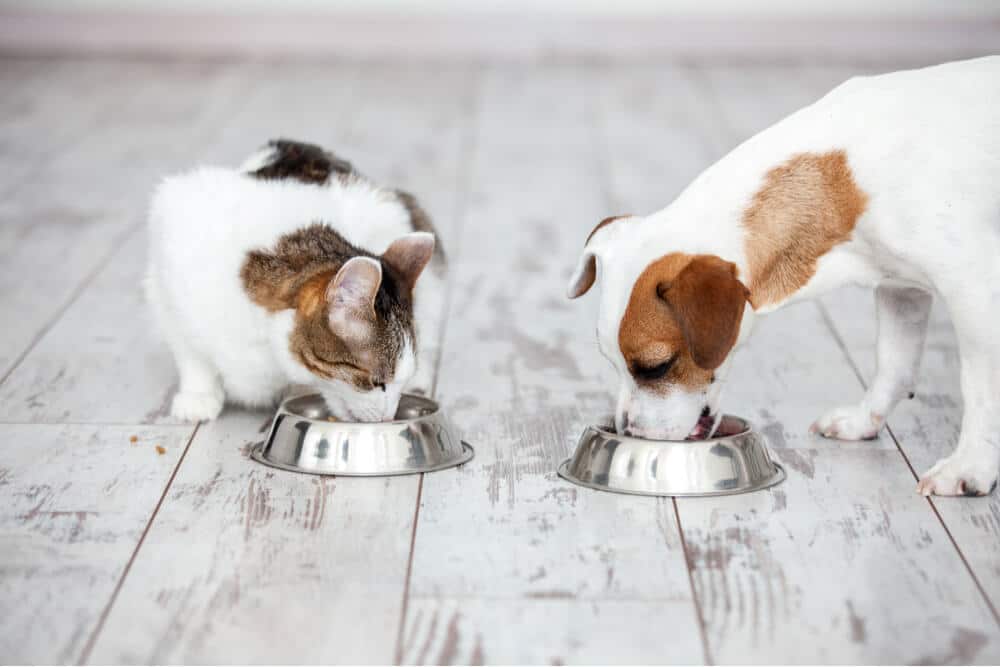
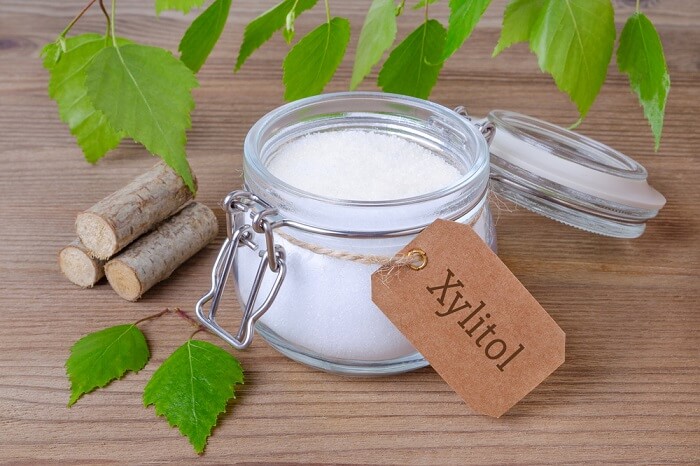
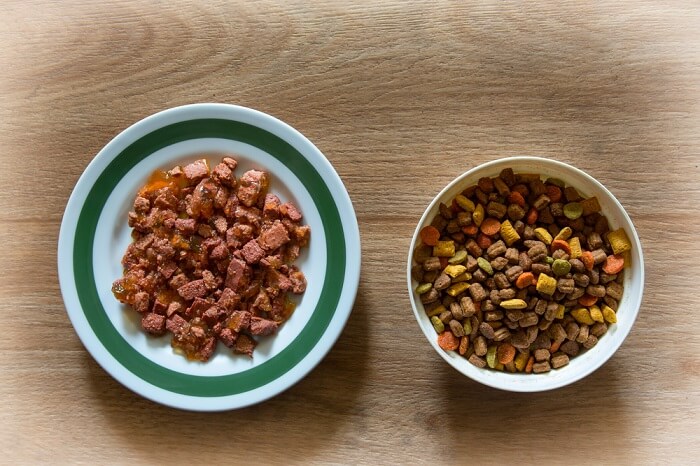
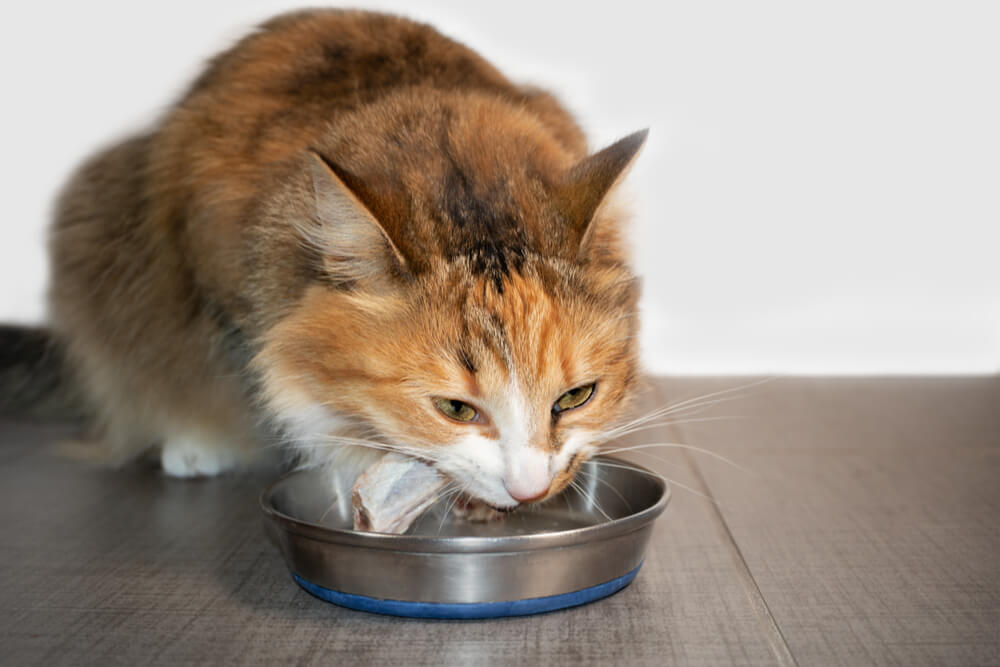
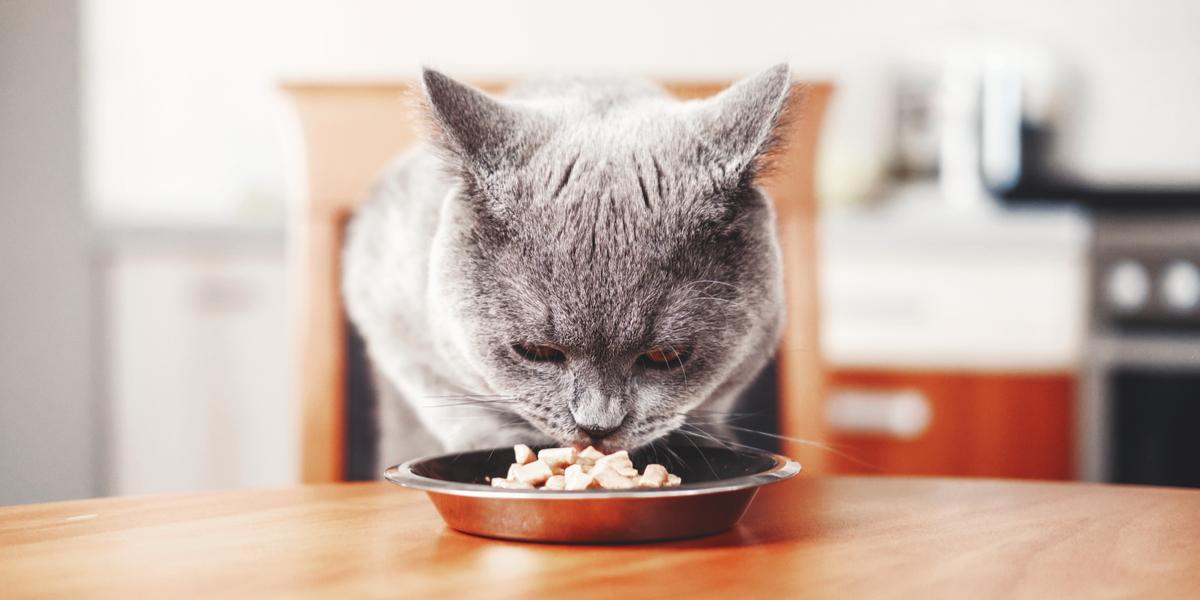
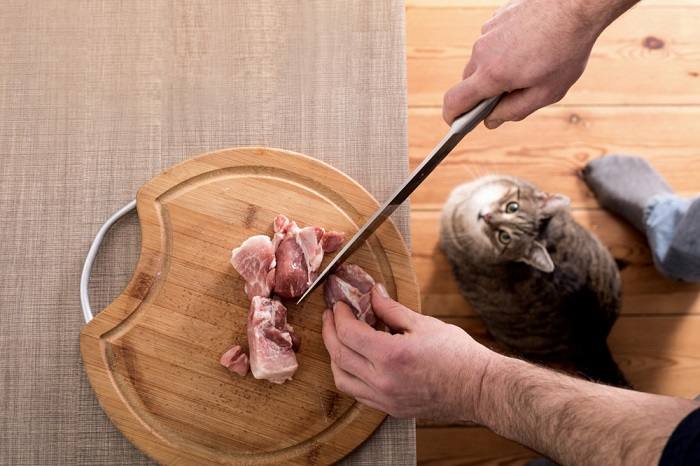
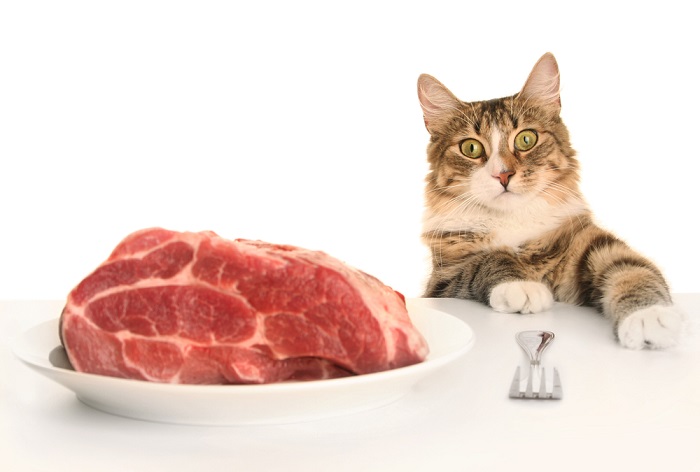
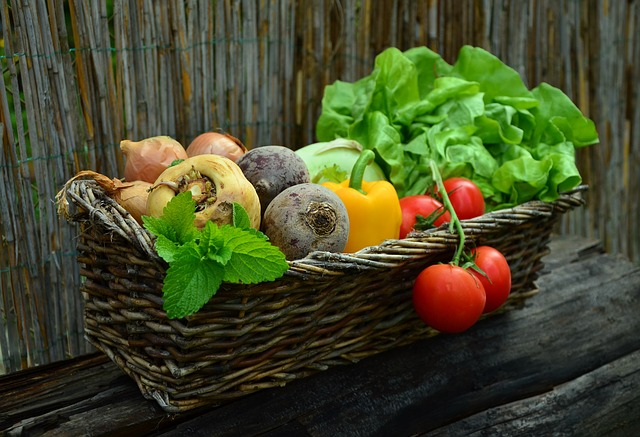
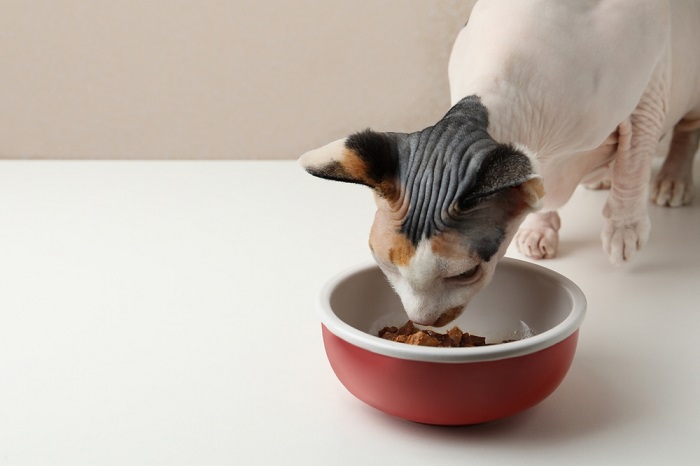
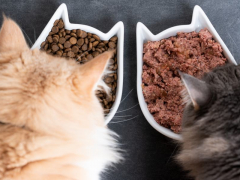
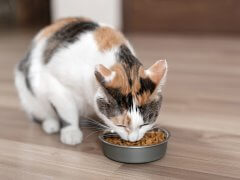
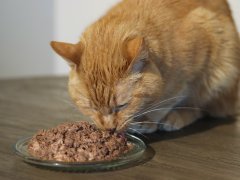
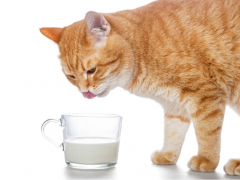
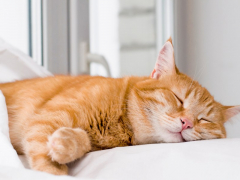

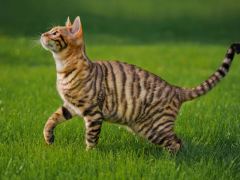
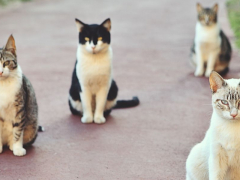
Why do Veterinarians keep saying things like “Carbohydrates… do provide a good source of easily-metabolizable energy. As your cat’s digestive system is optimized for protein, they can struggle to digest more complex carbohydrates.”? These statements are incompatible.
Can felines digest carbohydrates easily, only with difficulty, or not at all? Carbs are easy to digest(metabolize) or not!
It’s like saying Humans easily digest dietary fiber. We don’t digest fiber at all, that’s why it gives our feces bulk.
Exactly, I read this and was like okay now i need to find another article to find out what carbs they can eat.
What will kill fleas instantly and how can I get them off my kitten
Hi there! You might like our article on the best flea treatments for cats.
A question. Can cat eat insects
Good question! While it’s never a good idea for your cat to eat wild insects (they may have come into contact with toxic pesticides), some pet food manufacturers have begun to use insect protein in their products. Black soldier fly larvae and crickets are common. One example is Catit’s Nuna recipe: https://www.petfoodprocessing.net/articles/14628-catit-debuts-insect-based-cat-food-treat-formulas